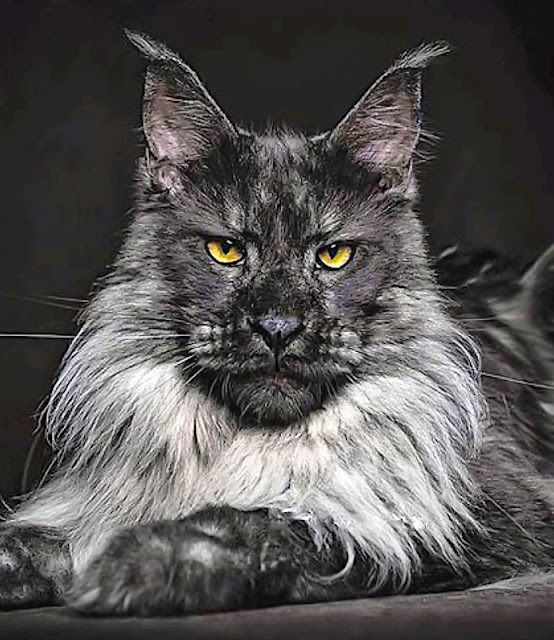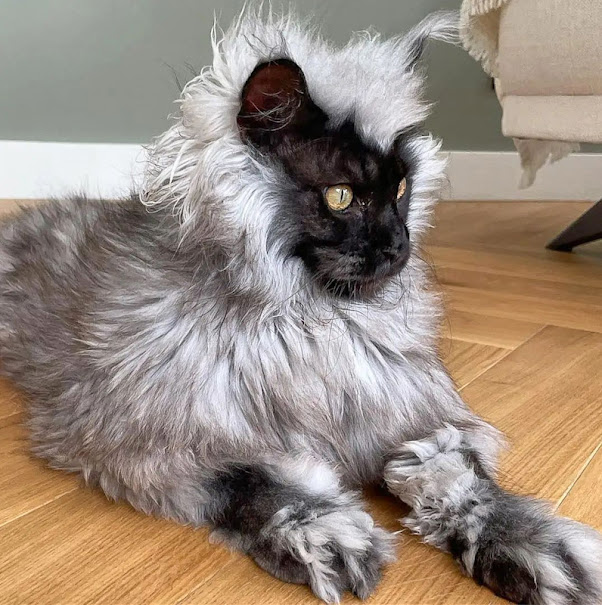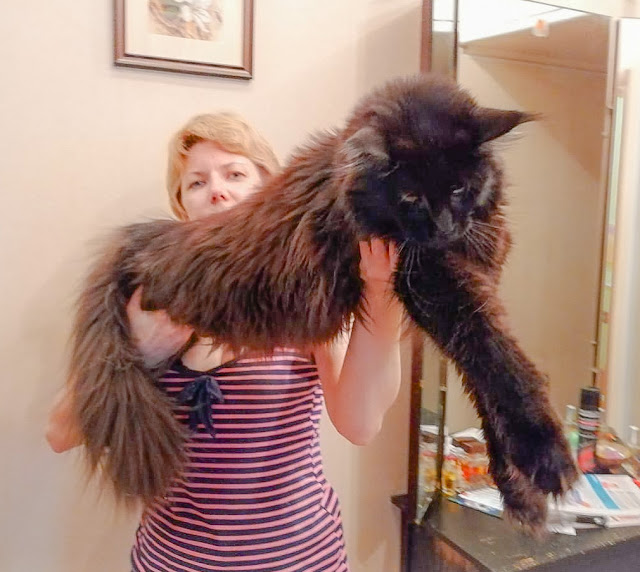Two mistakes that a Maine Coon purchaser should avoid
There are two potentially big mistakes that a person who wants to purchase a Maine Coon might make and about which they should have some knowledge. They both concern the health of this cat.
The problem with the popular Maine Coon cat breed is that the cats can inherit serious health conditions and a purchaser needs to know whether there have been DNA and other tests carried out to identify whether the Maine Coon cat in question carries the genetic mutation which gives the cat the disease.
Three major inherited diseases
So, for example, the Maine Coon cat is predisposed to inheriting the genetic disease known as Spinal Muscular Atrophy (SMA). It's a condition which can affect Maine Coon cats but there is a test available which can isolate this mutation. For example, Langford Vets advertise on the Internet their Molecular Diagnostic Unit, where a PCR-based assay can be carried out to quickly and accurately identify the SMA mutation in Maine Coon cats.
Read about SMA in Maine Coons by clicking on this link.
Another very well-known genetically inherited condition affecting this breed is hypertrophic cardiomyopathy otherwise known as HCM. The genetic mutation is present at birth but it doesn't show up until the cat is an adult. Most Maine Coon cats develop the disease after three years of age but some do not develop it until much later at 6-8 years of age.
There is a gene test combined with ultrasound which can assist breeders in deciding whether or not to use a Maine Coon cat for breeding. They want to know whether a breeding cat is homozygous to this disease i.e. there are two copies of the gene carrying the mutation.
You want to know from your breeder of choice whether this test has been carried out and whether their breeding Maine Coons are free of HCM as per this genetic test.
Click this for posts about HCM in Maine Coons.
And then we have hip dysplasia which affects the Maine Coon (and Patellar luxation). This hip joint disease can affect cats at a young age, as young as four months of age in fact. Unfortunately, my research indicates that there is not a simple genetic test which can identify whether a Maine Coon is predisposed to this disease. X-rays can be taken to check the anatomy of hip joints and the amount of looseness in them.
First potential mistake
The first mistake is not to consider the tests concerning these well-known inherited health problems to make sure that the cat that you buy has the smallest possible chance of carrying these diseases. And you can do that by discussing this with your breeder of choice. I would not advise buying a Maine Coon 'blind' on the internet without checking out this point.
Second potential mistake
The second mistake to make would be to not take out a pet health insurance policy on your Maine Coon cat to cover treatment of any one of these diseases. They will be expensive to treat (what about upwards of $20k for hip dysplasia?) and you will need an insurance policy to pay for it. The problem here is that these insurance policies are quite expensive as well because a Maine Coon cat, as mentioned, is known to carry these diseases. That pushes up the premiums.
Click this for an alternative way to fund pet health insurance.
The alternative, in my view, is to set up a savings account before you purchase a Maine Coon cat which should be used exclusively for veterinary treatment of the cat that you adopt if and when these diseases occur. This could be your own self-financed pet insurance policy! By the time the diseases occur, if they occur, you might have more than £1000 or thousand dollars in the account to make inroads into the treatment of the disease.











Comments
Post a Comment
Please share your Maine Coon experiences.